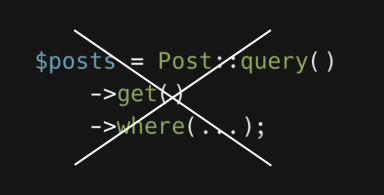In modern multi-tenancy systems, it's pretty popular to give a specific sub-domain for every user or company, like laraveldaily.slack.com. How to handle these subdomains in Laravel routes?
The code in routes/web.php is pretty straightforward:
Route::domain('{company_name}.workspace.com')->group(function () {
Route::get('users', 'UsersController@index');
});
So {company_name} could be any value (of course, you need to configure it in your domain DNS records, too), and then this will come as a parameter variable to the Controller, with the same name.
public function index($company_name)
{
$company = Company::findOrFail($company_name);
$users = User::where('company_id', $company->id)->get();
return view('users.index', compact('users'));
}Wait, But.. How to Setup Local Environment?
With this routes file, we have a problem. Then we need to configure our local server to have specific workspace.com domain? Don't worry, there's a cure for that, we can make even that domain a variable:
Route::domain('{company_name}.' . env('SITE_URL', 'workspace.com'))->group( // ...So now the whole string would consists of two variables - subdomain and main domain, both configurable.
For your local environment, you can set up something like workspace.test domain, and then add this into your .env file:
SITE_URL=workspace.testIf Laravel doesn't find any value for SITE_URL, it will default to workspace.com.
That's it, good luck with your multi-tenancy projects!
-front_grid.jpg)
-front_grid.jpg)

;-(5)-front_grid.jpg)
-front_grid.jpg)
-front_grid.jpg)
No comments or questions yet...